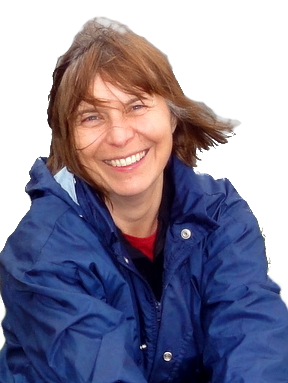
- Electrolytic hydrogen production – electrochemical hydrogen entry into iron, electrodes for electrolytic hydrogen production.
- Corrosion – kinetics and mechanism of corrosion of nitrided metals and alloys; corrosion processes on electrodes for electrolytic hydrogen production.
- Kinetics and mechanism of reactions (free radical autooxidation of SO2 in the presence of phthalocyanins – model reaction of processes taking place in the atmosphere; corrosion; hydrogen evolution in alkaline solutions).)
- Changes in the surface topography:
- of metal surfaces under the influence of corrosive environment
- during cobalt deposition on gold;
studied with atomic force microscopy (AFM) and scanning tunnel microscopy (STM).
Education
- 2013
- Postgraduate Studies “Innovation Manager” at Collegium of Management and Finance, Warsaw School of Economics
“New cathodes for electrolytic hydrogen production”. - 2011
- D.Sc. at the Institute of Physical Chemistry PAS, Warsaw
“Abnormal hydrogen entry into iron from NaOH solutions during cathodic and anodic polarization” - 1996
- Ph.D. at the Institute of Physical Chemistry PAS, Warsaw
“Kinetics of the autooxidation of S(IV) oxyanions in the presence of phthalocyanines as catalysts” - 1996
- M.Sc. at the Faculty of Chemistry, Warsaw University of Technology
“Synthesis of ozone in silent discharge in the presence of a solid phase with a developed surface area”
Professional experience
- 2014 – now
- Professor at the Faculty of Mathematics and Natural Sciences. School of Exact Sciences
- 2012 – 2014
- Professor at the Faculty of Biology and Environmental Sciences
- 2012 – now
- Cardinal Stefan Wyszyński University in Warsaw
- 2004 – 2016
- Assistant professor at the Department of Electrochemistry, Corrosion and Applied Surface Science
- 1997 – 2004
- Assistant Professor at the Department of Chemical Dynamics
- 1985 – 1997
- Research Assistant at the Process Kinetics Laboratory
- 1985 – 2016
- Institute of Physical Chemistry PAS, Warsaw
International experience
- 2012
- School of Engineering, Media and Sustainable Development, De Montfort University, Leicester, Great Britain (1 week)
- 2009
- Department of Materials Science and Engineering NCKU, Tainan, Taiwan (1 week)
- 2005, 2006
- National Centre for Metallurgical Research (CENIM-CSIC), Madrid, Spain (2 x 1 week)
- 2002
- Institut für Festkörper- und Werkstoffforschung, Dresden, Germany (3 months)
- 2002
- Institut für Physikalische und Theoretische Chemie, Universität Bonn, Bonn, Germany (2 weeks)
- 1999 – 2000
- Universite Blaise-Pascal, Clermont-Ferrand, France (14 months)
- 1998
- Physikalisches Institut, Westfallische Wilhelms-Universität, Münster, Germany (4 weeks)
- 1997
- Institut für Festkörper- und Werkstoffforschung, Dresden, Germany (6 weeks)
Papers
More than 50 scientific papers
Patent applications
- „Urządzenie do określania szybkości wnikania wodoru do metali” („Device for determining the rate of hydrogen entry into metals”) . I. Flis-Kabulska, J. Flis, T. Zakroczymski; prawo ochronne nr PL 68322 na wzór użytkowy, 2016 r.
- „Sonda do określania szybkości wnikania wodoru do metali” („Probe to determine the rate of hydrogen entry into metals”). I. Flis-Kabulska, J.Flis, T. Zakroczymski; prawo ochronne nr PL 68319 na wzór użytkowy, 2016 r.
Scientific projects
- 2002 – 2005 – „Surface Phenomena and Reactions” (acronym SURPHARE, contract No. G5MA-CT-04034, project No. GMA1-2002-72057) – Centre of Excellence (CoE) under the 5. Framework Programme of the European Union. Preparation of the proposal; Coordination Secretary of the CoE; a member of the Coordination Board; responsible for one of the six project tasks
- 2011 – 2014 – „NanOtechnology, Biomaterials and aLternative Energy Source for ERA integration” (acronym NOBLESSE, Grant agreement no: 285949) – project under the 7. Framework Programme of the European Union „Coordination and support action”. Participation in the preparation of the proposal; vice leader of one of the seven project packages.
- 2008 – 2013 – „Kwantowe nanostruktury półprzewodnikowe do zastosowań w biologii i medycynie – Rozwój i komercjalizacja nowej generacji urządzeń diagnostyki molekularnej opartych o nowe polskie przyrządy półprzewodnikowe” („Quantum semiconductor nanostructures for applications in biology and medicine – Development and commercialization of a new generation of molecular diagnostic devices based on new Polish semiconductor devices “) (nr POIG.01.01.02-00-008/08). Sources of financing – 85% – funds from the European Regional Development Fund, 15% – state budget. Contractor.
- 2006 – 2009 – „Oddziaływanie wodoru i środowisk korozyjnych na azotki żelaza o określonym składzie chemicznym i fazowym” („Effect of hydrogen and corrosive environments on iron nitrides of defined chemical and phase composition”) (Nr 3 T08C 050 30). Contractor.
- 2012 – 2016 – „Modyfikacja powierzchni węglem wprowadzanym plazmowo i osadzanym z roztworu w celu poprawy własności elektrokatalitycznych katod do wytwarzania wodoru” („Surface modification with carbon introduced by plasma treatment and deposited from solution for improvement of electrocatalytic properties of cathodes for production of hydrogen”) (National Science Centre project, Nr 2012/05/B/ST5/00751). Project manager.
Popularisation and dissemination of science
- Participation in the popular-science program „Laboratory” edited by Wiktor Niedzicki, on the application of AFM/STM (recorded in 2002, broadcast in 2002 and 2003).
- Participation in the radio programme edited by Artur Wolski on „Hydrogen-fuel of the future” (, September 2013 r.)
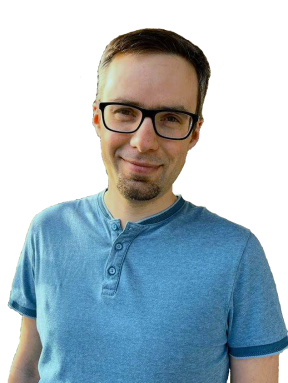
- Madhavi Dalsaiya (Ph.D. student)
- Sharad B. Pillai (post-doctoral researcher)
- Deepak Upadhyay (post-doctoral researcher)
- High pressure (p > 1GPa) chemistry and physics – in particular compression driven structural transitions and reactions in fluorine-rich inorganic systems
- Relationship between structure and magnetism in compounds of copper, silver and gold; low-dimensional magnetic interactions
- Experimental tools: XRD, IR/Raman spectroscopy, magnetometry; theoretical modelling: solid-state DFT
Education
- 2019
- Habilitation (D.Sc.) from the Faculty of Chemistry, Nicolaus Copernicus University in Toruń
- 2013
- Ph. D. in chemistry from the Faculty of Chemistry, University of Warsaw
- 2008
- M. Sc. in chemistry (specialty: physical chemistry) from the Faculty of Chemistry, University of Warsaw
Professional experience
- 2014 – now
- Associate professor at the Faculty of Mathematics and Natural Sciences, Cardinal Stefan Wyszyński University in Warsaw
- 2014 – 2019
- Assistant professor at the Faculty of Mathematics and Natural Sciences, Cardinal Stefan Wyszyński University in Warsaw
- 2013 – 2017
- Scientific assistant at the Centre of New Technologies, University of Warsaw
International experience
- 2013 – 2014
- Post-doctoral research stay in the group of dr. Mikhail Eremets at the Max Planck Institute of Chemistry
- 2010
- Non-degree graduate student at Cornell University (2 month) with Noble laurate prof. Roald Hoffmann
- 2007, 2008
- Research scholar at the Geophysical Laboratory of the Carnegie Institution of Washington working with dr. Viktor Struzhkin
Teaching experience
- Number of undergraduate students promoted: 8
- Undergraduate courses in: Inorganic chemistry (lecture), General chemistry (exercises), Physical chemistry and spectroscopy (laboratory exercises)
Publications
see here
Lectures and conferences
see here
Prizes and Scholarships
- 2022
- Award from the Rector of the Cardinal Stefan Wyszyński University for scientific achievements
- 2018
- Scholarship for outstanding young researchers from the Minister of Science and Higher Education
- 2017
- Award from the Rector of the Cardinal Stefan Wyszyński University for scientific achievements
- 2017
- Santander Universidades scholarship for outstanding researchers of the Cardinal Stefan Wyszyński University
- 2009
- Scholarship for the best Ph. D. students of the Mazovian Voivodeship
- 2009
- 2nd prize for the best poster presentation at the 19th International Symposium of Fluorine Chemistry
- 2008 – 2012
- Research scholarship within the TEAM Project awarded by the Foundation for Polish Science
- 2008
- Best poster award at the E-MRS 2008 Fall Meeting
- 2008
- The Rychlewski Award for the best M. Sc. thesis in Quantum Chemistry in Poland in 2008
Research projects
- 2021 – 2024
- “OPUS LAP” grant from the National Science Centre (Poland) – principal investigator (213 000 €)
- 2020 – 2024
- “SONATA BIS” grant from the National Science Centre (Poland) – principal investigator (460 000 €)
- 2017 – 2021
- “OPUS” grant from the National Science Centre (Poland) – principal investigator (160 000 €)
- 2015 – 2018
- “Sonata” grant from the National Science Centre (Poland) – principal investigator (120 000 €)
- 2013 – 2014
- Research grant within the “Mobility Plus” programme from the Ministry of Science and Higher Education (Poland) – principal investigator (90 000 €)
- 2011 – 2013
- “Opus” grant from the National Science Centre (Poland) – co-investigator
- 2008 – 2013
- „TEAM” grant from the Foundation for Polish Science (Poland) – Ph. D. student
Referee for Chemical Communications, The Journal of Physical Chemistry, Journal of Materials Chemistry, Dalton Transactions, Scientific Reports, Physical Chemistry Chemical Physics (for full list see Publons profile)
- 2019 – 2021
- Vice-director of the Institute of Chemical Sciences, Cardinal Stefan Wyszyński University in Warsaw
- 2019
- Co-editor of the special issue of the journal Crystals: „First-Principles Prediction of Structures and Properties in Crystals„
- 2019
- Member of the organizing committee of the 19th European Symposium on Fluorine Chemistry (Warsaw, Poland)
- 2014 – 2019
- Dean’s representative for scientific affairs at the the Faculty of Mathematics and Natural Sciences, Cardinal Stefan Wyszyński University in Warsaw
- 2014 –
- Member of the faculty council of the Faculty of Mathematics and Natural Sciences, Cardinal Stefan Wyszyński University in Warsaw
- 2010 – 2011
- Member of the faculty council of the Faculty of Chemistry, University of Warsaw
- 2009 – 2011
- Member of the graduate student council at the Faculty of Chemistry, University of Warsaw (chair in the 2010/2011 academic year)
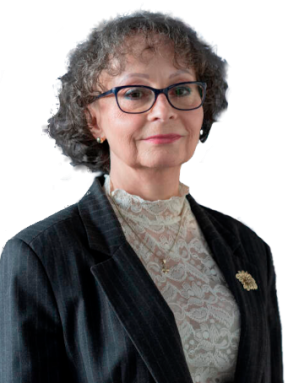
ORCID
X-ray crystallography, intermolecular interactions, inclusion compounds, molecular inclusion, molecular recognition, structural supramolecular chemistry
Education
- B.S., Warsaw University, Chemistry, 1977
- Ph.D., Polish Academy of Sciences, Institute of Physical Chemistry, Chemistry, 1984
- D.Sc., Polish Academy of Sciences, Institute of Physical Chemistry, Chemistry, 2007
- Professor title awarded by the President of the Republic of Poland, Polish Academy of Sciences, Institute of Physical Chemistry, Chemistry, 2012
Professional Experience
- Research assistant, Institute of Physical Chemistry, Polish Academy of Sciences, 1977–1984
- Postdoctoral Fellow, Institute of Organic Chemistry, University of Geneva, Geneva, Switzerland, 1984–1986
- Adjunct, Institute of Physical Chemistry, Polish Academy of Sciences, 1986–2007
- Associate Professor, Institute of Physical Chemistry, Polish Academy of Sciences, 2008–2014
- Vice Head of Department of Physicochemistry of Supramolecular Complexes, 1999
- Acting Head of Department of Physicochemistry of Supramolecular Complexes, 1999–2003
- Deputy Director of the Institute of Physical Chemistry, 2003–2007
- Associate Professor at Cardinal Stefan Wyszynski University in Warsaw, 2009–2013
- Dean of the Faculty of Biology and Environmental Sciences at Cardinal Stefan Wyszynski University in Warsaw, 2009–2014
- Full Professor at Cardinal Stefan Wyszynski University in Warsaw, 2013–
Short term scientific visits
- Visiting Scientist, Department of Crystallochemistry and Crystallophysics, Jagiellonian University, Kraków, Poland, 1978
- Visiting Scientist, Institute of Structural Chemistry, University of Parma, Parma, Italy, 1980, 1981, 1982
- Visiting Scientist, Institute of Chemistry, Hungarian Academy of Sciences, Budapest, Hungary, 1982
- Visiting Scientist, Medical Foundation of Buffalo, Buffalo N.Y., USA, 1988
- Visiting Scientist, Department of Chemistry, Saint Mary’s University, Halifax, Canada, 1996
- Visiting Scientist, Steacie Institute, National Research Council, Ottawa, Canada, 1996
- Visiting Scientist, Institute of Chemistry, Bath University, Bath, UK, 2003
- Visiting Scientist, Institute of Chemistry, Kings College, London, UK, 2003
- Visiting Scientist, Chemistry Department, Brown University, Providence, USA, 2004
- Visiting Scientist, Institut de Biologie et Chimie des Protéines, CNRS UMR 5086, Lyon, 2005, 2006. 2008
- Visiting Scientist, Chemistry Department, Stellenbosch University, Stellenbosch, South Africa, 2007
- Visiting Professor, A. M. Butlerov Institute of Chemistry, Kazan Federal University, Kazan, Russia, 2015, 2016
- Invited Professor, Institut Universitaire de France (IUF), Chaire de Tectonique Moléculaire, Laboratoire de Tectonique Moléculaire (Chimie de la Matière Complexe), Université de UMR-CNRS 7140 Strasbourg, Strasbourg, France, 2018
Professional Activities
- Member, Polish Chemical Society, 1979–
- Member, Editorial Board of Crystal Engineering supplement to Materials Research Bulletin, 1998
- Member, Editorial Board of Crystal Engineering, 1999–2003
- Member, European Crystallographic Association, 2000–
- Member, Polish Crystallographic Association, 2006–
Publications
- refereed journals: 196
- monographs and proceedings: 3
- patents: 1
- citations: >2200 (>2000 without self-citations)
- H-index = 24
- PAN Secretary Award (team award, team head dr Janusz Lipkowski), Warsaw, 1983
- The award for the best original paper in ICHF PAN in 1992, Warsaw, 1993
- Third Prize for the best original paper in ICHF PAN in 1995, Warsaw, 1996
- The award for the best original paper in ICHF PAN in ICHF PAN in 1996, Warsaw, 1997
- Silver Cross of Merit, Warsaw, 1989
- Gold Cross of Merit, Warsaw, 2004
- Knight’s Cross of the Order of Restoration of Poland, Warsaw, 2011
- Ambassador of Polish Congresses, 2018
Promoted PhD students: 3
Languages: Polish, English, Russian, French
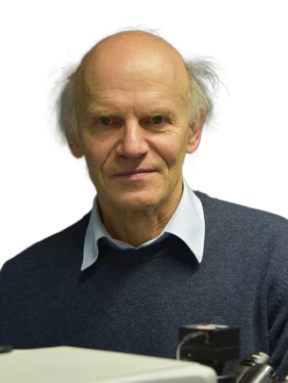
ORCID
Edukacja
- 1974
- tytuł magistra (Uniwersytet Warszawski)
- 1979
- tytuł doktora (Instytut Chemii Fizycznej PAN)
- 1987
- habilitacja (Instytut Chemii Fizycznej PAN)
- 1998
- tytuł profesora
Kariera zawodowa
- 1980
- staż podoktorski w grupie prof. Josefa Michla, University of Utah, Salt Lake City
- 1981 – obecnie
- pracownik Instytutu Chemii Fizycznej PAN
- 1991 – obecnie
- kierownik Zakładu Fotochemii i Spektroskopii Instytutu Chemii Fizycznej PAN
- 2001 – obecnie
- profesor UKSW
Visiting professor
- 1988 – 1990
- University of Texas, Austin
- 1993, 1994, 1995
- University of Roskilde
- 1999, 2001
- Colorado School of Mines/National Renewable Energy Laboratory, Golden
- 2000
- University of Colorado at Boulder
- 1996
- Visiting lecturer (Troisième Cycle) na uniwersytetach w Bazylei i Fryburgu, Szwajcaria
- Łączna liczba publikacji – ponad 280
- Łączna liczba cytowań – ponad 5850 (Web of Knowledge), ponad 7600 (Google Scholar)
- Indeks Hirscha h = 42 (Web of Science), 49 (Google Scholar)
- 53 wykłady plenarne i na zaproszenie na konferencjach naukowych oraz 31 wykładów w instytucjach naukowych i w towarzystwach chemicznych (od roku 2000)
- Kierownik grantów: 26 grantów z polskich i unijnych instytucji rządowych i pozarządowych (w tym grant Centre of Excellence UE, oraz dwa granty MAESTRO)
- Liczba wypromowanych doktorów – 8
- Recenzje profesorskie – 17
- Recenzje prac habilitacyjnych – 38
- Recenzje prac doktorskich – 36
Lista najważniejszych i najczęściej cytowanych prac dostępna jest pod tym linkiem
Towarzystwa naukowe
- Polskie Towarzystwo Chemiczne (od 1980)
- American Chemical Society (od 2001)
- European Photochemistry Association (od 1979, przewodniczący w latach 2000-2004)
- International Society of Porphyrins and Phthalocyanines (od 2000)
Rady redakcyjne
- Orbital (1991-1994)
- Chemical Physics (2001-)
- Journal of Luminescence (1994-2003)
- Photochemical and Photobiological Sciences (2001-2004)
- Methods and Applications in Fluorescence (2012‑)
Komitety organizacyjne cyklicznych międzynarodowych konferencji
- International Conference on Photochemistry (1997-2002)
- Horizons in Hydrogen Bond (2003-)
- Methods and Applications in Fluorescence (2003–)
- Nagroda Sekretarza Naukowego Polskiej Akademii Nauk (1980)
- Nagroda Polskiego Towarzystwa Chemicznego (1981)
- Nagroda Wydziału Nauk Matematycznych, Fizycznych i Chemicznych PAN (1987)
- Wybór na Prezydenta, European Photochemistry Association (2000 i 2002)
- Doktorat honoris Causa Uniwersytetu w Roskilde, Dania (2004)
- Złoty Krzyż Zasługi (2004)
- Pierwsze miejsca w konkursach na najlepszą publikację Instytutu Chemii Fizycznej PAN (2003, 2004, 2005, 2019)
- Nagroda im. Marii Skłodowskiej-Curie Wydziału III PAN (2012)
- Wybór na członka korespondenta Polskiej Akademii Nauk (2013)
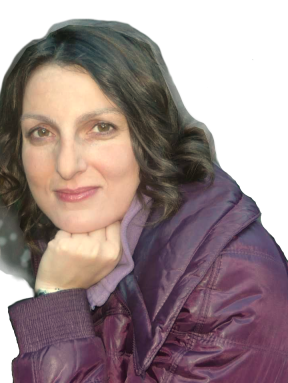
ORCID
Academic career
- 2019
- Habilitation in Chemistry, Institute of Physical Chemistry, Polish Academy of Sciences
- 2007
- PhD in Chemistry, Warsaw University, Department of Chemistry, supervisor: Prof. Janusz Jurczak (organic chemistry)
- 2003
- MSc in Chemistry, Warsaw University, Department of Chemistry, MSc. thesis entitled supervisor: Prof. Janusz Jurczak (organic chemistry)
Employment
- 11.2021 – ongoing
- Department of Mathematics and Natural Sciences, Cardinal Stefan Wyszynski University
- 07.2009 – 06.2022
- Institute of Physical Chemistry, Polish Academy of Sciences
- 10.2009 – 01.2016
- Department of Biology and Environmental Sciences, Cardinal Stefan Wyszynski University
Research stays at home and abroad
- 2011 – 2012
- three short-term scientific visits in Laboratory of the Centre de Recherche et Restauration des Musées de France, Paris, France (group of dr. Philippe Walter)
- 09.2008 – 03.2009
- post-doc at Department of Chemistry, Imperial College, London, UK, in the group of professor Anthony G. Barrett
- 11.2007 – 08.2008
- post-doc at Institute of Organic Chemistry, Polish Academy of Science
- 06.2006 – 08.2006
- three months scientific internship, Hoffmann La Roche, Basel, Switzerland, in the group of dr. Hans Peter Wessel
- 2018 – 2020
- NCN Miniatura ”Molecular recognition of folic acid and antifolates by receptors based on simple sugars and urea” — leader
- 2013 – 2016
- IuventusPlus ”Complexes of native and modified cyclodextrins with folic acid and antifolates” (granted by Polish Ministry of Science and Higher Education) — leader
- 2011 – 2012
- Joint project between Polish Academy of Sciences and CNRS (Centre de Restauracion des Musées de France). ”Structural changes upon long-term conservation – fourth dimension of chemistry?” — investigator
- 2010 – 2014
- POIG.01.01.02-14-102/09 „Sugars as raw materials in the synthesis of high value added products” realized by a consortium of six institutions: Institute of Organic Chemistry PAS, Institute of Physical Chemistry PAS, University of Gdańsk, University of Łódź, Warsaw Polytechnic, Silesian Polytechnic — investigator
- organic chemistry (lecture, exercises, and laboratory exercises)
- medicinal chemistry (lecture and exercises)
- pharmaceutical chemistry (lecture)
- 2021 –
- Member of the Faculty Council of the Faculty of Mathematics and Natural Sciences, Cardinal Stefan Wyszyński University in Warsaw
- 2012 –
- Member of the Polish Chemical Society
- 2009 – 2014
- Member of the Faculty Council of the Faculty of Biology and Environmental Sciences, Cardinal Stefan Wyszyński University in Warsaw
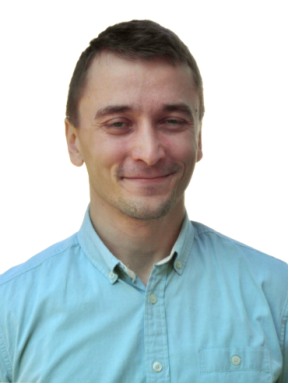
ORCID, ResearchGate, Mendeley, Publons (peer reviewer)
Professional experience
- 2023 – now
- Institute of Chemical Sciences, Cardinal Stefan Wyszyński University,
Position: Professor - 2004 – 2023
- Institute of Chemical Sciences, Cardinal Stefan Wyszyński University,
Position: Assistant Professor - 2014 – 2015
- Institute of Physical Chemistry, Polish Academy of Sciences, Warsaw, Poland; position: postdoc (Jacek Waluk group)
- 2011 – 2012
- Department of Chemistry, Michigan State University, East Lansing, MI, USA
Position: postdoc (Gary Blanchard group)
Education
- 2013
- Ph.D degree in chemistry, University of Warsaw, Warsaw, Poland; “Magnetic iron oxide nanoparticles as potential carriers for doxorubicin targeted drug delivery; Spectroscopic investigation of doxorubicin, nanoparticles and doxorubicin-nanoparticle interactions” (advisors: prof. P. Krysiński, University of Warsaw, Warszawa, prof. G. Blanchard, Michigan State University, East Lansing, MI, USA)
- 2008
- MSc degree in chemistry, Silesian Technical University, Gliwice, Poland; „Virtual Screening for indentification of potential inhibitors against human DNA: cytosine-C5 methyltransferase DNMT1” (advisors: prof. W. Szeja, Silesian Technical University, Gliwice, prof. J.M. Bujnicki, International Institute of Molecular and Cell Biology, Warsaw)
- Research grant, Principal Investigator, „Hemiporphycene as a selective fluorescent probe for determination of metal cations”, Polish National Science Center 23000 PLN, 2017 – 2018
- The Best Lecturer Award – 2018 – the award given by the Student’s Council
- Rector’s award for Excellence – 2017
Graduate and undergraduate students
- Number of undergraduate students promoted: 5
- Number of graduate students promoted: 4
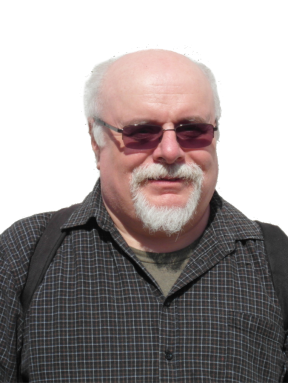
Education
- 1975 – 1980
- Faculty of Physics and Astronomy, Warsaw University
- 1980
- MSc degree, Department of High Energy Physics supervised by prof Ewa Skrzypczak.
- 1984 – 1986
- PhD studies in the domains of electrochemistry and computer science
- 1991
- PhD in Physical and Theoretical Chemistry, supervised by prof. Zofia Borkowska
Scientific degrees
1980MSc in Physics1991PhD in Physical and Theoretical Chemistry2002Habilitation. DSc in Physical and Theoretical Chemistry
Employment
- 1981 – 2015
- Institute of Physical Chemistry Polish Academy of Sciences
- 2014 – present
- Cardinal Stefan Wyszynski University Faculty of Mathematics and Natural Sciences.
Publications
see here
Citations
- Hirsch index 16
- Citations number without self-citations (10 year score) 437
PhD theses supervised
- Simulation of nanostructured surfaces obtained by passivity and growth, mgr Ł. Bartosik, completed and defended in Institute of Physical Chemistry PAS, 2014.
- Numerical simulation of passive layer morphologies on metal electrode surfaces, mgr J. Stępień – being performed in the Institute of Physical Chemistry PAS. On December 11th 2017 I was appointed as the supervisor by the Institute’s Scientific Council. Completion expected in December 2020.
- Research Project: Numerical modelling of corrosion processes on isolated metal surface initiated by a punctual damage of the protection layer, financed by grant KBN 3T08A01026, carried out at the Institute of Physical Chemistry, finished July 6th, 2005
- Research Project: Numerical simulations of nanopore formation and self organization in anodized alumina based on simple cellular automata approach, grant NCN N N204 139038, carried out at the Institute of Physical Chemistry, finished March 10th, 2013
- Research Project: Numerical simulations of passive layer morphology at the metal electrode, financed by grant NCN 2015/19/B/ST4/03753, carried out at Cardinal Stefan Wyszyński University, finished January 5th, 2020
Scientific Societies
- ACS – American Chemical Society member since 2010.
- PTF – Polish Physical Society member since 2010.
Additional skills
- Foreign languages: Fluent English and French, average Portuguese and Russian
- Operating systems: DOS, MS Windows, UNIX, Linux
- Programming Languages: FORTRAN, C, C++, Python
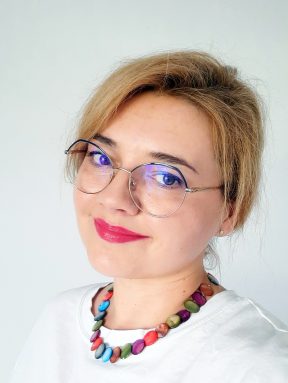
Education
10.2009 – 09.2015
PhD Student of Chemistry, speciality: Polymer Chemistry and Technology
Warsaw University of Technology, Faculty of Chemistry, Department of Chemistry and Technology of Polymers
10.2020 – 09.2011
Post-diploma studies in Management Studies, speciality: Research Projects Management
Lazarski University in Warsaw, Centre for Postgraduate Studies
10.2004 – 06.2009
M.Sc. Specialising in Chemical Technology
Jan Kochanowski University of Kielce, Faculty of Natural Sciences
Academic degrees/titles
27.03.2024
Habilitation (D.Sc.) from the Faculty of Chemistry, University of Łódź
02.02.2016
Ph.D. in Chemistry, Warsaw University of Technology, Faculty of Chemistry, Department of Chemistry and Technology of Polymers
25.10.2011
Postgraduate Diploma in Management Studies, Łazarski University in Warsaw, Centre for Postgraduate Studies
08.07.2009
M.Sc. in Chemistry, Jan Kochanowski University of Kielce, Faculty of Natural Sciences
Employment
10.2016 – present
Assistant Professor, Cardinal Stefan Wyszyński University in Warsaw, Faculty of Mathematics and Natural Sciences
10.2015 – 09.2016
Research Assistant, Cardinal Stefan Wyszyński University in Warsaw, Faculty of Mathematics and Natural Sciences
pokój 114, budynek 24 (CLNP)
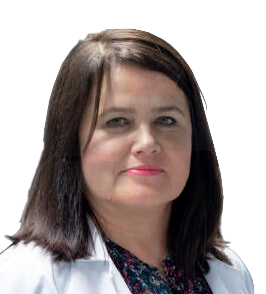
Education
1995
M.Sc. in chemistry, Łódź University, Faculty of Mathematics, Physics and Chemistry,
„Calorimetric interaction investigation in systems containing cholesterol and triglycerol in carbon tetrachloride”.
2001
Ph.D. in chemistry, International Doctoral Studies, Institute of Physical Chemistry, Polish Academy of Sciences,
“Thermodynamic properties of cytosine and its methyl-, hydroxyl- and methoxy-derivatives in water, methanol and N,N-dimethylformamide”.
2018
D.Sc., Faculty of Chemistry, Warsaw University of Technology,
“Inclusion complexes of cyclodextrins with biologically and pharmacologically active compounds. Application of chemically neutral, nanometric calcium carbonate as their potential carrier”.
2010
The certificate of postgraduate studies: Quality Manager, Warsaw School of Economics, Department of Quality Management, „Project of a research laboratory quality system according to the Polish norm PN-EN ISO/IEC 17025:2005”.
Professional experience
2019
Associate professor at the Faculty of Biology and Environmental Sciences, Cardinal Stefan Wyszyński University in Warsaw
2014 – 2019
Assistant Professor at the Faculty of Biology and Environmental Sciences, Cardinal Stefan Wyszyński University in Warsaw
1995 – 2014
Institute of Physical Chemistry PAS, Warsaw
pokój 205, budynek 24 (CLNP)
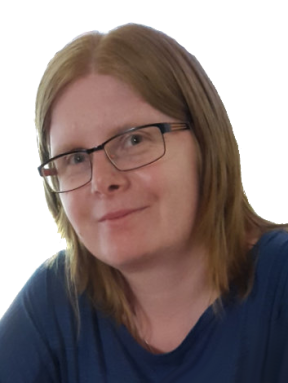
ORCID
- Badania nad strukturą i reaktywnością cząsteczek w elektronowych stanach wzbudzonych
- Badanie wpływu odziaływań wewnątrz- i międzymolekularnych na właściwości spektralne, fotofizyczne i fotochemiczne cząsteczek
- Badania wpływu otoczenia (np. rozpuszczalniki, polimery, matryce niskotemperaturowe) na właściwości fotofizyczne i fotochemiczne cząsteczek
- Fotoindukowane procesy przeniesienia protonu i elektronu
Wykształcenie
- 2004 – 2009
- Studia doktoranckie, Wydział Chemii, Uniwersytet Wrocławski
Tytuł rozprawy: Badania spektroskopowe właściwości prostych oksymów
Praca obroniona z wyróżnieniem
Promotor: Prof. dr hab. Zofia Mielke
Uzyskany tytuł: doktor nauk chemicznych w zakresie chemii fizycznej i teoretycznej - 1998 – 2003
- Studia magisterskie, Wydział Chemii, Uniwersytet Wrocławski
Uzyskany tytuł: magister chemii; specjalizacja: fizyka chemiczna - 1992 – 1996
- Liceum Ekonomiczne, Wrocław
Uzyskany zawód: technik ekonomista; specjalizacja: finanse i rachunkowość
Zatrudnienie
- 2022 –
- Adiunkt
Wydział Matematyczno-Przyrodniczy. Szkoła Nauk Ścisłych, Uniwersytet Kardynała Stefana Wyszyńskiego, Warszawa - 2012 – 2022
- Specjalista
Zakład Fotochemii i Spektroskopii, Instytut Chemii Fizycznej Polskiej Akademii Nauk, Warszawa - 2003 – 2004
- Chemik analityk
Instytut Uprawy Nawożenia i Gleboznawstwa w Puławach, Wrocław - 1996 – 1997
- Księgowa
Gminna Spółdzielnia „Samopomoc Chłopska”, Czernica
Staże i wizyty naukowe
- 2018
- Wizyta naukowa
Uniwersytet Narodowy im. Tarasa Szewczenki, Kijów, Ukraina - 2017
- Wizyta naukowa
Instytut Fizyki B.I. Stepanova, Narodowa Akademia Nauk, Mińsk, Białoruś - 2009 – 2012
- Staż podoktorski
Wydział Chemii Stosowanej i Instytut Nauk Molekularnych, National Chiao Tung University, Hsinchu, Tajwan (prof. Yuan-Pern Lee)
Łączna liczba publikacji z listy filadelfijskiej: 24
H-index: 10; liczba cytowań: 274 (Scopus)
Udział w 18 konferencjach naukowych o zasięgu krajowym i międzynarodowym
Dodatkowe kwalifikacje
Studium przygotowania pedagogicznego (2003 r., Wydział Chemii, Uniwersytet Wrocławski)
Języki
- angielski (zaawansowany)
- rosyjski (podstawowy)
Zainteresowania
rozwój osobisty i duchowy; psychologia
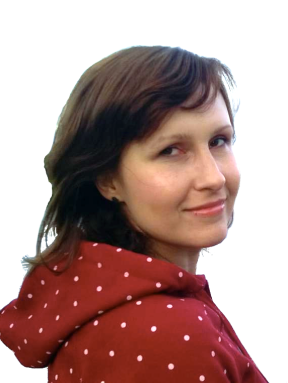
Education
2009
MSc Eng, Department of Physical Chemistry and Technology of Polymers, Faculty of Chemistry, Silesian University of Technology, Gliwice
2016
PhD, Faculty of Chemistry, Silesian University of Technology, Gliwice
(„Copper and nickel catalysts deposited on ceria-zirconia in selective reduction of nitrogen oxides and methane reforming with carbon dioxide”)
Professional experience
2019 – now
Assistant Professor, Faculty of Mathematics and Natural Sciences. School of Exact Sciences Cardinal Stefan Wyszynski University in Warsaw
2017 – 2019
Scientific Assistant, Postdoctoral researcher, Faculty ofMathematics and Natural Sciences. School of Exact Sciences Cardinal Stefan Wyszynski University in Warsaw
2016 – 2017
Assistant, Faculty of Mathematics and Natural Sciences. School of Exact Sciences Cardinal Stefan Wyszynski University in Warsaw
2010 – 2015
PhD student, Faculty of Chemistry, Silesian University of Technology, Gliwice
2009 – 2010
Intern, Centre of Polymer and Carbon Material, Polish Academy of Science, Gliwice
2009 – 2010
MSc Eng, Department of Physical Chemistry and Technology of Polymers, Faculty of Chemistry, Silesian University of Technology, Gliwice
pokój 114, budynek 24 (CLNP)
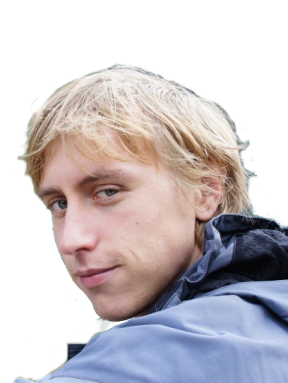
Career
2020 – ongoing
Cardinal Stefan Wyszynski University in Warsaw, Faculty of Mathematics and Natural Sciences. School of Exact Sciences, Adiunkt;
2019 – 2020
University of Warsaw, Centre of New Technologies, Adiunkt;
Education
2014 – 2019
PhD Studies, University of Warsaw, Faculty of Chemistry, Specialty: computational biophysics, Summa cum laude;
2011 – 2013
MSc Studies, University of Warsaw, Faculty of Chemistry, Specialty: organic synthesis, Summa cum laude;
2013 – 2014
MSc Studies, University of Warsaw, Faculty of Physics, Specialty: biophysics;
2012 – 2013
MSc Studies, University of Warsaw, Faculty of Mathematics, Informatics and Mechanics, Specialty: topology;
2008 – 2012
BSc Studies, University of Warsaw, Faculty of Mathematics, Informatics and Mechanics;
2008 – 2011
BSc Studies, University of Warsaw, Faculty of Chemistry.
pokój 114, budynek 24 (CLNP)
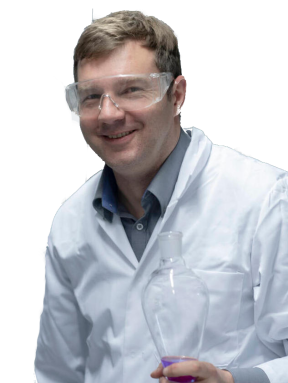
Doświadczenie zawodowe
2019 – obecnie
UKSW, Wydział Matematyczno-Przyrodniczy,
kierownik kierunku chemia
10.2016 – obecnie
UKSW, Wydział Matematyczno-Przyrodniczy, asystent
10.2007 – 09.2012
UKSW, Wydział Matematyczno-Przyrodniczy,
Prodziekan ds. Infrastruktury
10.2007 – 10.2012
UKSW, Wydział Matematyczno-Przyrodniczy, adiunkt
06.2007 – 06.2015
PAN Instytut Chemii Fizycznej, adiunkt, nastepnie specjalista
02.2007 – 06.2007
PAN Instytut Chemii Fizycznej, stażysta – asystent
10.2005 – 12.2006
INSA, Lyon, Francja, staż podoktorski
10.2004 – 09.2005
Instytut Chemii Organicznej PAN, chemik
Wykształcenie
1999 – 2004
Instytut Chemii Organicznej PAN, studium doktoranckie, stopień doktora nauk chemicznych.
Promotor pracy doktorskiej: prof. Sławomir Jarosz,
tytuł pracy:
„Synteza i właściwości układów makrocyklicznych zwierających rdzeń sacharozy”
1994 – 1999
Politechnika Warszawska, Wydział Chemiczny, kierunek: biotechnologia, tytuł magistra inżyniera.
Promotor pracy dyplomowej: dr Jerzy Winiarski i dr Michał Fedoryński,
tytuł pracy:
„Synteza antybiotyku, pochodnej fleroksacyny połączonej chemicznie z cefalosporyną”
pokój 118, budynek 24 (CLNP)
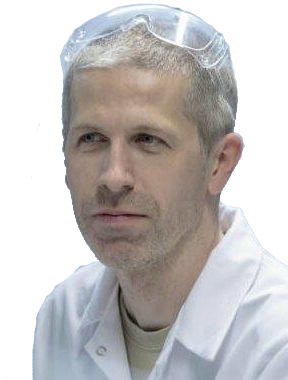
Edukacja i zatrudnienie
od 03/2018
Adiunkt w Instytucie Nauk Chemicznych Wydziału Matematyczno-Przyrodniczego.Szkoła Nauk Ścisłych UKSW
09/2011 – 06/2018
Adiunkt w Instytucie Chemii Organicznej PAN w Warszawie, grupa prof. Bohdana Korybut-Daszkiewicza
06/2011 – 08/2011
Stanowisko adiunkta w Instytucie Chemii Fizycznej PAN w Warszawie, grupa prof. Marka Pietraszkiewicza
08/2009 – 06/2011
Staż podoktorski w Laboratory of Biophysical Chemistry, grupa prof. Alison Rodger, University of Warwick, Coventry, Wielka Brytania.
01/2008 – 07/2009
Staż podoktorski – Asystent w grupie prof. Bohdana Korybut-Daszkiewicza, Instytut Chemii Organicznej PAN, Warszawa.
01/2008
Sopień doktora chemii – grupa prof. Bohdana Korybut-Daszkiewicza, Instytut Chemii Organicznej PAN, Warszawa.
10/2002 – 06/2007
Doktorant w Instytucie Chemii Organicznej PAN w Warszawie – praca pod kierownictwem prof. Bohdana Korybut-Daszkiewicza; temat pracy: „Synteza i właściwości wielocentrowych receptorów molekularnych,”
06/2002
Dyplom Nauczyciela Chemii, Akademia Podlaska, Siedlce,
06/2002
Stopień magistra chemii – specjalność chemia organiczna, Akademia Podlaska (obecnie Uniwersytet w Siedlcach), Siedlce.
10/1997 – 06/2002
Studia magisterskie, Akademia Podlaska (obecnie Uniwersytet w Siedlcach), Siedlce; praca pod kier. dr. hab. inż. Zbigniewa Karczmarzyka, pt. ”Struktury krystaliczne i molekularne 4,6-dimetylo-izotiazolo[5,4-b]pirydyn-3(2H)-onu i jego pochodnych arylopiperazynowych”
Pokój 118, budynek 24 (CLNP)
tel. 22 380 96 30
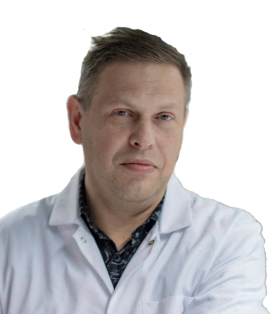
| 2019 – obecnie | UKSW, Wydział Matematyczno-Przyrodniczy, Starszy referent ds. technicznych |
| 2015 – 2018 | Instytut Ceramiki i Materiałów Budowlanych, Pełnomocnik Dyrektora – kierowania działalnością gospodarczą Instytutu objętą zakresem koncesji nr B-013/2015 wydanej na podstawie art. 6 ust. 1 i art. 7 ust. 1 ustawy z dnia 22 czerwca 2001 r. o wykonywaniu działalności gospodarczej |
| 2014 – 2018 | Instytut Ceramiki i Materiałów Budowlanych, Zastępca Kierownika Zakładu Nanotechnologii |
| 2014 – 2018 | Członek Zespołu ds. Strategii Instytutu |
| 2012 – 2018 | Redaktor tematyczny czasopisma „prace ICiMB” |
| 2008 – 2012 | Członek zespołu redakcyjnego czasopisma „prace ICiMB” |
| 2008 – 2018 | Instytut Ceramiki i Materiałów Budowlanych, adiunkt |
| 2006 – 2008 | Instytut Ceramiki i Materiałów Budowlanych, inżynier chemik |
| 2006 – 2008 | Instytut Ceramiki i Materiałów Budowlanych, inżynier chemik |
Pokój 109,
budynek 24 (CLNP)

